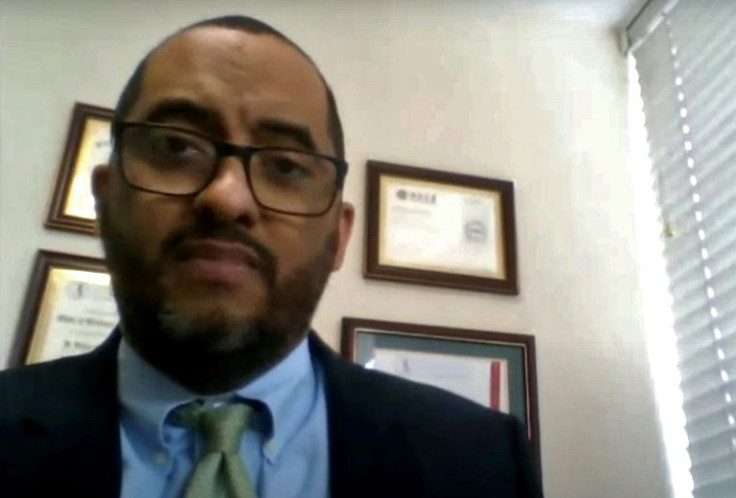Exiled Nicaraguan Ambassador 'Fed Up With Cruelty'
Former Nicaraguan ambassador Arturo McFields's defection was spectacular.
He was President Daniel Ortega's representative to the Organization of American States (OAS), but when speaking to its general assembly in March, he denounced the "dictatorship" back home and blasted the detention of 177 political prisoners.
Speaking to AFP by telephone from the United States, McFields talked about how the bloody repression of anti-government protests four years ago -- which left 355 dead, dozens imprisoned and thousands fleeing into exile, according to human rights groups -- had disillusioned him.
Last November, former guerrilla Ortega, 76, won a fourth consecutive mandate as several potential rivals sat in detention, with no genuine competition available to stand.
He rules with absolute power, backed up by his wife, Vice-President Rosario Murillo.
On March 23, McFields decided he had had enough.
"While crime and drug trafficking increase, the police are persecuting and harassing religious (leaders), journalists, singers and the few human rights defenders that are left. It's irrational.
"But every dead person has their resurrection, and I think that Nicaragua will have its Glorious Sunday."
"Dare to jail religious leaders. That could be a new stage in the repression. Last year the president said that in any other country, the religious (leaders who criticize the government) would be jailed... He branded them terrorists."
"This year, the threats have continued, and we know that eventually they materialize. I want to believe that there will be hope, the people are fed up with so much repression, as are government officials, police, soldiers."

"This weariness will at some point materialize in some way as a demonstration against something else. How do I know that? I'm the living proof. I was on the inside and I got fed up. I got fed up with so much cruelty, so much mistreatment.
"Repression is a boomerang. When the repression and cruelty increase, this shows you up as a dictator. And now the rhetoric about the (US) empire and the CIA and all those things that are usually said, falls apart and shows that you are a dictator without much charisma.
"This exaggerated repression... is revealing the grotesqueness of the dictatorship and the violence that it uses."
"The government does not allow people to openly express categoric positions. I am giving you the vibe of the environment and the interactions that you have amongst high-level officials where you hear the comments, you see the reactions. You feel it and you say, 'I'm not the only one.'
"The government manages to placate these disagreements with the three Ps: Prison, perquisites and persuasion.
"They are not using much persuasion, there are no perquisites because there is no Venezuelan cooperation, so what they are using is prison. They take away officials' passports and that has been reinforced after what happened with me."
"On a daily basis, Rosario is the one who is in the front row. However, when there are decisions of great magnitude, the president has the last word.
"On a day-to-day basis, my communication was with her."
"We are in the transition period towards exile. In my country, I have been branded a traitor to the homeland... and if I return there, a cell in El Chipote (the police station where opponents are held) awaits me.
"We ask them to extend the temporary protection status for Nicaraguans that are fleeing. Let them earn an honest living, because 'migra' (migration authorities) can return them to a regime of terror."
© Copyright AFP {{Year}}. All rights reserved.





















